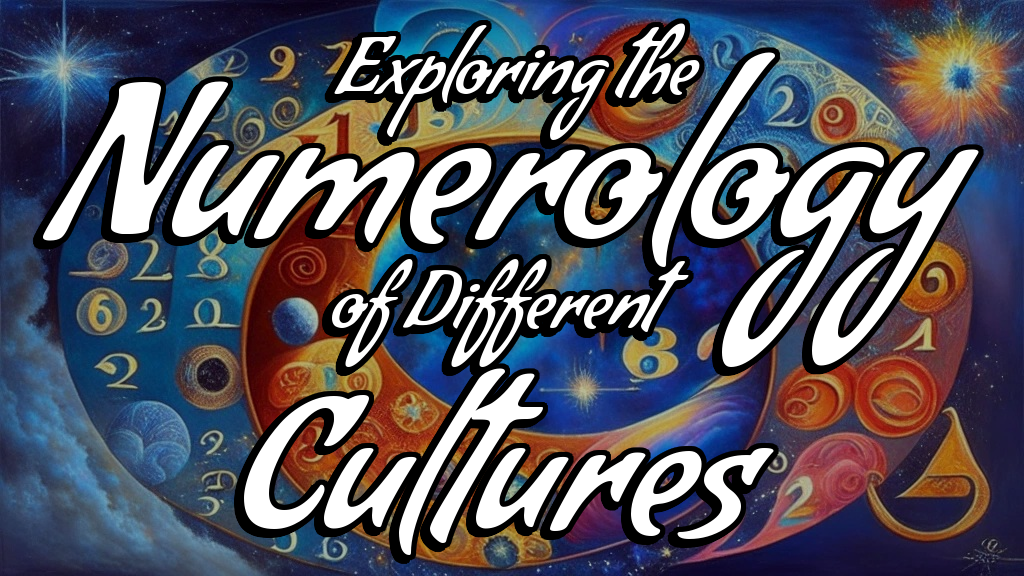Welcome to the captivating world of numbers, specifically, the intriguing study of numerology. This ancient practice, rooted in the belief that numbers possess inherent spiritual or magical significance, has been a part of human civilization for thousands of years. From Pythagoras to the ancient Chinese, numerology has captivated minds and influenced lives.
Numerology is not merely about numbers; it is about understanding the profound cosmic plan and the interplay between the physical world and the spiritual realm. As we explore numerology in different cultures, we’ll delve into the intriguing ways that societies have interpreted these symbolic relationships. By the end of our exploration, you’ll see how numerology influences our lives, often in ways we never even realized.
Our journey into numerology takes us across the globe, illuminating shared themes and stark differences. Along the way, we’ll see how various cultures perceive the power of numbers, and how this has shaped their beliefs, traditions, and even their identity.
Understanding the Concept of Numerology in Different Cultures
As we begin our comparative study of numerological beliefs, it’s important to understand that each culture has its unique interpretation and application of numerology. In some cultures, numbers are seen as divine messages, while in others, they are used as tools for divination.
For instance, in Chinese culture, the numbers 8 and 9 are considered especially auspicious, associated with wealth and longevity, respectively. Conversely, the number 4 is viewed as unlucky due to its phonetic similarity to the word for ‘death’. Now, contrast this with the Pythagorean school of thought in ancient Greece, where every number was associated with a specific cosmic vibration, suggesting an interconnected universe.
We also see numerology deeply intertwined with religious beliefs, as in the Jewish mystical tradition of Kabbalah, where numbers are used to interpret scripture and understand God’s divine plan.
Similarly, in Islamic numerology (Ilm-ul-Adad), every Arabic letter is assigned a numerical value, and these numbers are used for divination and understanding one’s destiny.
Comparative Study of Numerological Beliefs Across the Globe
When we compare cultural variations in numerology, we find a fascinating array of beliefs and practices. In the Western world, most people are familiar with Pythagorean numerology, which is based on the numerical value of letters in the alphabet. This system is often used to analyze personal names and birth dates to gain insight into personality traits and life paths.
On the other hand, the Chinese system of numerology is heavily influenced by the philosophy of yin and yang, the five elements, and the lunar calendar. In this system, your birth details are used to calculate your “Ba Zi” or destiny chart, which can provide detailed insights about your future and your relationships with others.
In Indian numerology, there are three main systems: the Pythagorean system, the Chaldean system, and the Vedic system. The Vedic system, based on the ancient Indian scriptures known as the Vedas, takes into account the planetary positions at the time and place of your birth, and uses this information to provide detailed predictions about your life.
Cultural Variations in Numerology: Key Differences
Exploring numerology in diverse cultures reveals several key differences in how numbers are perceived and used. For instance, while the number 7 is considered lucky in many Western cultures due to its associations with spirituality and perfection, it’s considered unlucky in Chinese culture because it is associated with death and mourning.
Another interesting difference lies in the methods used for numerological calculations. While Western numerology primarily uses the Pythagorean system to translate letters into numbers, many Eastern cultures use systems based on their native alphabets, such as the Hebrew Gematria or the Arabic Abjad system.
These cultural variations in numerology highlight the richness and diversity of human thought and offer us a broader perspective on the power and potential of numbers.
Exploring Numerology in Diverse Cultures: Highlights
As we continue our journey exploring numerology across cultures, let’s take a moment to highlight some unique practices. In Japan, for example, there’s a tradition called ‘Kazoedoshi’, which involves assigning a number to each year of a person’s life, each with its own symbolic meaning.
In Ancient Egypt, numerology was deeply woven into their mythology and architecture. The Great Pyramid of Giza, for example, is thought to have been built using precise mathematical ratios, embodying a cosmic order.
African numerology, on the other hand, is deeply connected with the natural world and community life. Numbers are used to mark significant life events, and certain numbers are considered to hold special power and are used in rituals and ceremonies.
Cross-Cultural Perspectives on Numerology: Shared Themes
Despite the cultural diversity in numerological practices, there are shared themes that point to a universal human fascination with numbers. In nearly every culture, numbers are used to understand the cosmos, divine the future, and explore the human psyche.
Another shared theme is the belief in the power of certain numbers. The number three, for instance, is considered sacred in many cultures due to its association with divine entities (such as the Holy Trinity in Christianity or the Triple Goddess in pagan traditions).
Furthermore, the practice of reducing larger numbers to single digits (or master numbers like 11 and 22) is a common thread in many numerological systems, illustrating a shared desire to find unity and order in the complexity of the universe.
Cultural Influences on Numerology: An Analysis
Our understanding of numerology and cultural belief systems is further deepened when we analyze the cultural influences on numerology. The numerical beliefs of a culture are often a mirror reflecting its broader philosophical, religious, and social norms.
For instance, the prominence of the number 5 in Chinese numerology can be traced back to the influence of Taoism and its concept of the five elements (wood, fire, earth, metal, water). Similarly, the Kabbalistic Tree of Life, with its 10 sephiroth, reflects the Judaic belief in the ten divine utterances through which God created the world.
Global Numerological Traditions: A Comprehensive Study
As we’ve seen, global numerological traditions are as diverse as the cultures they emanate from. From the complex numerological systems of the Mayans and Aztecs, which were used for calendar calculations and prophecy, to the simple yet profound Aboriginal Dreamtime numerology, which connects numbers to the spiritual essence of animals and plants, these traditions reflect a universal human quest to find meaning in numbers.
Our comparative analysis of numerological beliefs reveals a fascinating tapestry of human thought and spirituality, woven through with threads of numbers. Whether it’s the auspicious numbers associated with life events in Chinese culture, the mathematical mysticism of the Pythagoreans, or the divine numerology of the Kabbalah, these traditions all point to a deep, inherent human fascination with the power and symbolism of numbers.
Numerology and Cultural Belief Systems: The Connection
The connection between numerology and cultural belief systems is profound and intrinsic. Numbers are not just quantitative values in these cultures; they are qualitative symbols that hold deep spiritual, philosophical, and psychological significance.
This connection is evident in the numerological traditions of the Native American tribes, where numbers are imbued with spiritual power and used in rituals and ceremonies. In Hinduism, the concept of ‘sankhya’ or number is one of the six major philosophical systems, and numbers play a key role in understanding the nature of reality.
Cultural Diversity in Numerological Practices: An Overview
Our journey exploring the cultural diversity in numerological practices has been enlightening. We’ve seen the power of numbers in shaping societies, influencing beliefs, and guiding lives. From the numerological practices of the ancient Egyptians to the modern applications of Pythagorean numerology, the language of numbers transcends geographical and cultural boundaries.
While each culture has its unique numerological systems and beliefs, what unites them is a shared recognition of the power and significance of numbers. This universal language of numbers offers a window into the human soul, revealing our deepest fears, aspirations, and the very essence of who we are.
Final Thoughts: The Impact of Numerological Beliefs Worldwide
Our exploration of numerology in different cultures has revealed a world rich in symbolism and meaning. Numerological beliefs worldwide have shaped civilizations, guided individuals, and continue to offer insights into the mysteries of the universe. By understanding the language of numbers, we can better understand ourselves, our relationships, and our destiny.
Ready to delve deeper into the world of numerology? Click here for a FREE, personalized numerology reading. Embark on a journey of self-discovery and tap into the wisdom of the ancients, all through the power of numbers.





